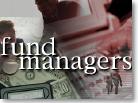|
Money manager defections
|
 |
April 23, 1999: 3:56 p.m. ET
More star managers leave big firms to start their own funds and companies
|
NEW YORK (CNNfn) - Somebody forgot to tell Wall Street the Cold War is over.
Star money managers are defecting in big numbers from top investment firms to start their own mutual funds, hedge funds and money management companies.
Some big investment houses are responding with "golden handcuff" contracts and lawsuits to protect their client base and the performance of their funds and institutional accounts.
"This is an ego-driven business," said Burton Greenwald of B.J. Greenwald Associates, a mutual fund consultant in Philadelphia. "They (the managers) say they created this record, they look at all the money they made, and they go out on their own. It's a trend across the industry."
A long line of defectors
But it's not always certain that the changes will affect the returns you get in the mail, said Russ Kinnel, head of equity fund research at Morningstar, a Chicago fund researcher.
In some cases, the results can be dramatic, Kinnel said. When star manager Garrett Van Wagoner left the Govett Smaller Companies Fund to form his own firm in 1995, the fund suffered massive outflows and performance problems.
The fund gained about 58 percent in 1993, 28 percent in 1994 and 68 percent in 1995, but then lost about 10 percent in 1996, 12 percent in 1997 and 11 percent in 1998, according to Morningstar.
"When people saw (Van Wagoner) leaving they started bailing out," Kinnel said.
Yet in other cases, there's no negative impact, Kinnel said. For example, after Tom Marsico stepped down from the Janus Twenty Fund in 1997 to form Marsico Capital Management, the fund still delivered stellar returns, he said.
"You maybe expected a lot of money to leave, but the fund was having great returns so more people put money in," Kinnel said.
'Golden handcuffs'
Sometimes fund companies in the wake of a big defection require other managers to sign 'golden handcuff' contracts, Kinnel said. The pacts may block managers from starting their own companies within a certain period of time if they leave. The contracts may also block them from taking employees or clients with them.
For example, Dreyfus made such a change after Ed Keely left Founders Funds -- later purchased by Mellon Bank (MEL), owner of Dreyfus -- for Janus Funds, he said.
Efforts to reach someone at Dreyfus for comment were unsuccessful.
In rare instances, fund companies will go to court to make their point.
For example, U.S. Trust (USTC) recently filed a lawsuit against James Cowperthwait and was granted an injunction that blocks Cowperthwait from taking clients with him after he left the company's management firm to form his own company. The injunction expires in June.
(U.S. Trust had purchased the company four or five years ago from Cowperthwait and a partner who has since died. Cowperthwait took about 20 employees with him when he left earlier this year).
"U.S. Trust expects to lose some of those clients, and we'll see in June," said Raphael Soifer, an analyst at Brown Brothers Harriman. "It frequently does make a difference, especially when the portfolio manager has been as successful as Cowperthwait has. But U.S. Trust has been successful, too."
Efforts to reach Cowperthwait or someone from U.S. Trust for comment were unsuccessful.
Some amicable partings
There are some happy endings, however. Greenwald recalled such a case when Fred Kobrick left State Street Research Funds to launch Kobrick Capital Management. Efforts to reach someone at State Street or Kobrick were unsuccessful.
In another case, two top managers at MFS Management in Boston, Chris Felipe and John Brennan, left in February to launch a hedge fund.
Felipe and Brennan offered to sub-advise the funds at MFS but the company decided it didn't fit their corporate culture, Greenwald said.
Sheldon Jacobs, editor of the No-Load Fund Investor, thinks the change in manager is relatively unimportant, especially at the bigger fund companies. The only exceptions would be if, for example, Peter Lynch left Fidelity.
"The market is so efficient that the performance of a fund is determined by the niche it's in rather than who's managing it," Jacobs said.
Plus, at most fund companies there's such a pool of talent so it isn't that hard for someone else to step in, he said.
Other companies, such as Putnam, avoid creating a star problem by having a team of managers in charge of a fund, Greenwald said. If there's no star, there won't be the possibility of a big defection.
"It's a fact of life in the business today," Greenwald said. "It raises issues when you build these superstars."
-- by staff writer Martine Costello
|
|
|
|
|
 |

|

